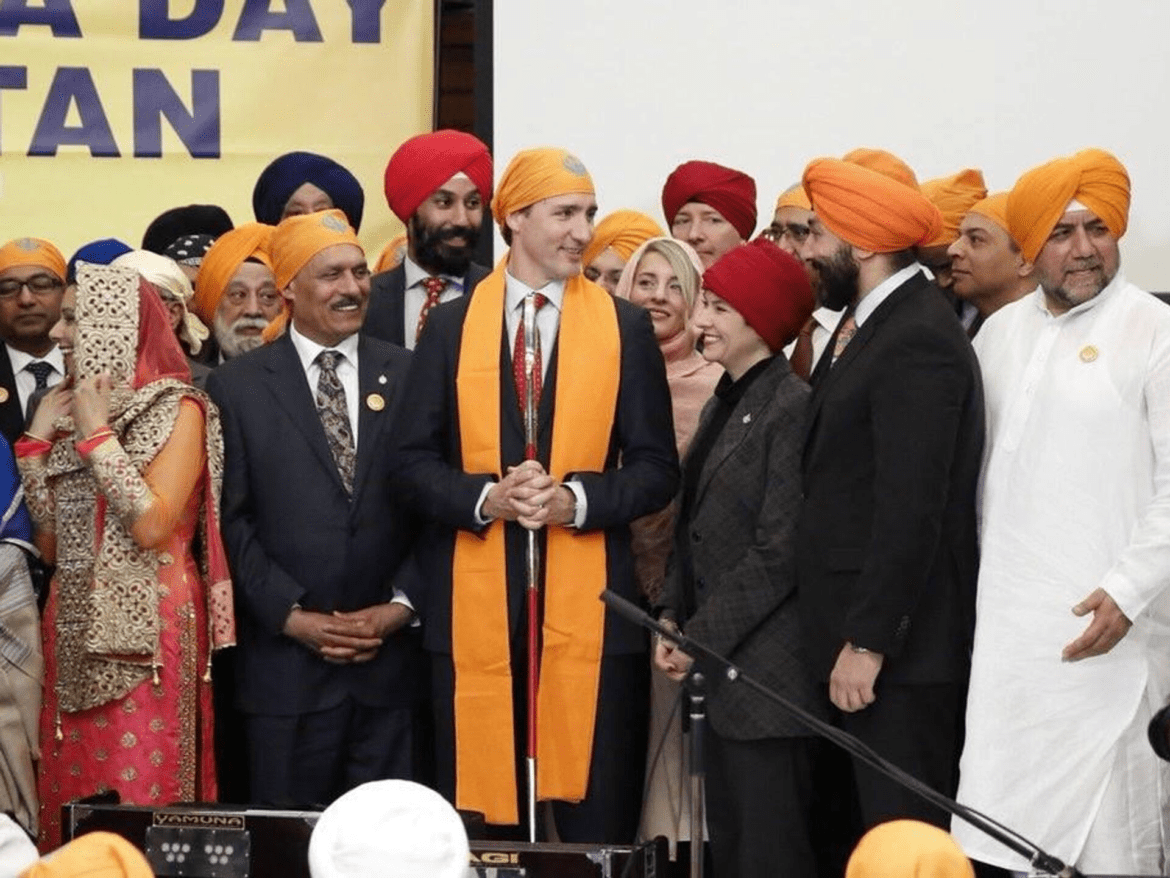AI Generated Summary
- Trudeau’s support for the farmers’ protest in India during his visit and the subsequent fallout reflect a pattern of engaging with India’s internal issues in ways that might be seen as diplomatic overreach.
- By aligning himself with a fringe section of the Sikh community in Canada, particularly the Khalistan separatists, Trudeau appears to be consolidating his political support at home.
- The arrest of three Indian nationals linked to the assassination of Hardeep Singh Nijjar, who was a prominent figure in the Khalistani movement in Canada, adds another layer to this tangled situation.
As the world grows more interconnected, the relationship between nations often hinges not only on formal diplomatic engagements but also on the internal politics and social dynamics within these countries. The recent developments involving Canadian Prime Minister Justin Trudeau and his comments on India exemplify this complex interplay. Trudeau’s remarks at the Khalsa Day celebration, where he refrained from condemning pro-Khalistan slogans, illustrate a political tightrope walk that may have significant implications for Canada-India relations.
Trudeau’s Political Strategy: Between Domestic Politics and International Relations
At first glance, Trudeau’s approach might seem to be just another instance of a politician playing to the gallery of his voter base. By aligning himself with a fringe section of the Sikh community in Canada, particularly the Khalistan separatists, Trudeau appears to be consolidating his political support at home. However, this move risks alienating the majority of the Sikh community that does not advocate for separatism, and more broadly, it could strain the traditionally cordial relations between Canada and India.
Trudeau’s statement that his job is “not to crack down on political protest” can be seen as a defense of freedom of expression. Yet, this stance becomes contentious when the protests in question advocate for the dismemberment of a sovereign nation. It raises a critical question: where should democratic leaders draw the line between supporting free speech and preventing divisive or potentially harmful rhetoric?
Hardeep Nijjar Case and Its Diplomatic Repercussions
The arrest of three Indian nationals linked to the assassination of Hardeep Singh Nijjar, who was a prominent figure in the Khalistani movement in Canada, adds another layer to this tangled situation. Trudeau emphasized the rule of law, portraying the arrests as a straightforward law enforcement issue. However, by timing these comments during India’s national elections, Trudeau inadvertently (or perhaps deliberately) politicized the issue, casting it as a part of a broader anti-Indian narrative.
This has not gone unnoticed in India. The Indian Ministry of External Affairs has critiqued Trudeau’s remarks for fostering a “political space” in Canada for separatism and extremism. Such statements are diplomatically delicate and underscore the friction between maintaining domestic political favor and nurturing international partnerships.
Intelligence Reports and Allegations of Interference
Complicating matters further, the Trudeau government’s release of an interim intelligence report alleging foreign interference in Canadian elections—which also pointed fingers at India, among other countries—suggests a tit-for-tat scenario. While the report predominantly targets China as the chief interferer, the inclusion of India is telling. It reflects an ongoing tension and perhaps a strategic move by Trudeau to assert Canadian sovereignty against perceived foreign influences, even at the risk of offending India.
The report’s timing and content could potentially backfire, casting Canadian politicians as unwitting pawns in international schemes, thereby undermining their credibility. It also risks painting the Trudeau administration as selectively attentive to foreign interference, addressing it when politically expedient rather than consistently.
Trudeau’s Delicate Dance on the World Stage
Prime Minister Trudeau’s diplomatic maneuvers come at a time when global alliances are increasingly vital. With issues like climate change, terrorism, and regional conflicts demanding cooperative international effort, the fraying ties between Canada and India could be detrimental. Trudeau’s support for the farmers’ protest in India during his visit and the subsequent fallout reflect a pattern of engaging with India’s internal issues in ways that might be seen as diplomatic overreach.
As Trudeau faces criticism both at home and abroad, his challenge will be to navigate these choppy political waters without compromising the broader Canadian interests. His administration’s stance on various global and domestic issues—including human rights abuses and the treatment of indigenous populations—will continue to be scrutinized in light of his foreign policy choices.
The Path Forward for Canada-India Relations
It is imperative for Prime Minister Trudeau to reassess his strategy towards India. Preserving the long-standing friendship and cooperation between Canada and India should be a priority that transcends immediate political gains. This will involve a careful recalibration of how Canada addresses internal political movements that have international implications.
The complexities of Trudeau’s policies towards India are a testament to the multifaceted nature of modern diplomatic relationships. They underscore the need for a balanced approach that respects domestic political imperatives while fostering stable and respectful international relations. In the ever-evolving geopolitical landscape, the strength of such relationships may well determine the capacity of nations like Canada and India to face global challenges together. As such, Trudeau’s next moves will be crucial in shaping the future of Canada-India ties in a rapidly changing world.
The opinions expressed in this article are those of the author. They do not purport to reflect the opinions or views of Khalsa Vox or its members.




